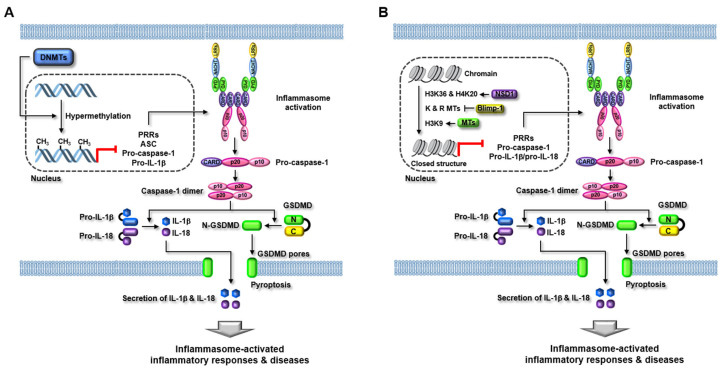Figure 5.
Regulatory role of MTs in inflammasome activation in inflammatory responses and diseases. (A) DNMTs induce hypermethylation in the promoter regions or genes of inflammasome components, such as PRRs, ASC, pro-caspase-1, and pro-inflammatory cytokines, and consequently inhibit the transcriptional expression of these genes and inflammasome activation. As a result, the caspase-1-mediated GSDMD pore formation and pro-inflammatory cytokine secretion are subsequently inhibited, resulting in the suppression of inflammasome-activated inflammatory responses and diseases. (B) NSD1, Blimp-1, and histone MTs directly or indirectly induce the hypermethylation or hypomethylation of histone proteins at lysine (K) and arginine (R) residues and close the chromatin structure, leading to the inhibition of the transcriptional expression of inflammasome component genes and inflammasome activation. As a result, the caspase-1-mediated GSDMD pore formation and pro-inflammatory cytokine secretion are subsequently suppressed, resulting in the amelioration of inflammasome-activated inflammatory responses and diseases. MTs, methyltransferases; DNMTs, DNA methyltransferases, ASC, apoptosis-associated speck-like protein containing a caspase recruitment domain; GSDMD, gasdermin D.

